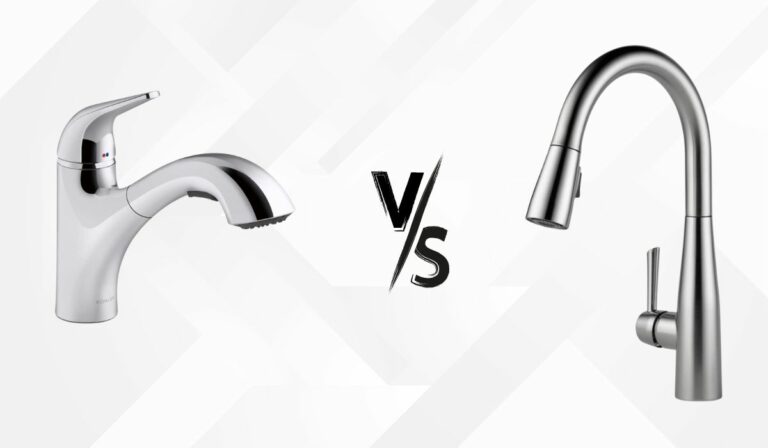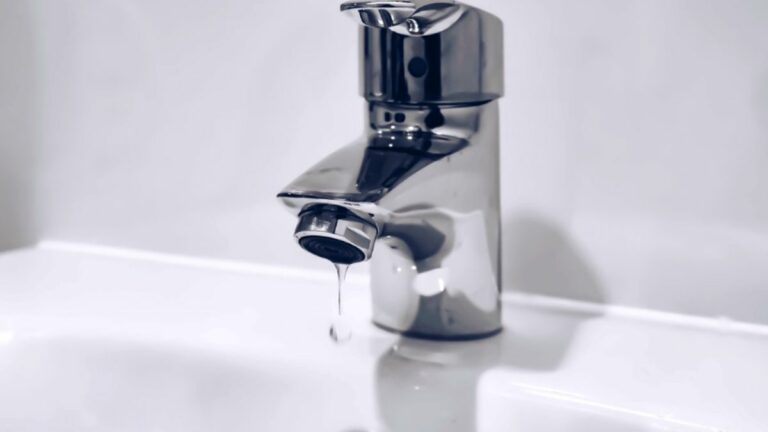How To Remove Smell From Kitchen Sink
You don’t have to live with a smelly kitchen sink. That unpleasant odor can creep up on you, making even your cleanest kitchen feel less inviting. Luckily, the cause is usually something manageable, often buildup or trapped waste. In this guide, you’ll discover how to identify the root of those smells and apply simple, effective solutions to banish them for good. Whether you’re dealing with a persistent stink or want to prevent future odors, these methods will help restore your sink’s freshness with confidence.
Common Causes Of Kitchen Sink Odors
Identifying The Source Of The Smell
Before tackling the smell, it’s essential to pinpoint where it’s coming from. Is it the drain, the garbage disposal, or trapped food particles? A quick sniff test around the sink, drain openings, and under the cabinet can help you locate the problem. Sometimes odors stem from the P-trap or buildup inside the pipes.
Food Debris And Grease Accumulation
Food scraps trapped in the sink or garbage disposal often rot and cause odors. Grease can coat the pipes, collecting grime and providing a breeding ground for bacteria and mold, which exacerbate the smell.
Clogged Or Dirty Drain Pipes
Over time, organic matter can settle inside drain pipes, decomposing and creating persistent odors. Minimal drainage or slow flow are symptoms of such blockages.
Issues With Garbage Disposal Units
Garbage disposals can trap food particles in hard-to-reach areas. Without regular cleaning, these become a source of foul smells. Also, mechanical problems can cause food to stagnate rather than grind properly.
Safe And Effective Cleaning Methods
Basic Cleaning With Soap And Water
Start by scrubbing your sink and the visible parts of the drain with warm, soapy water. Use a long-handled brush to reach under the drain cover. This removes surface grime and helps reduce immediate odors.
Using Baking Soda And Vinegar
This classic pairing is a natural deodorizer and cleaner. Sprinkle a generous amount of baking soda into the drain, then slowly pour white vinegar over it. The fizzing action breaks down grime and neutralizes odors. Let it sit for 10-15 minutes, then flush with boiling water.
Lemon And Salt For Natural Freshness
Lemon’s acidity cuts grease and leaves behind a refreshing scent, while salt acts as a mild abrasive. Sprinkle coarse salt around the sink and drain, then rub with lemon wedges. For garbage disposals, grind lemon rinds with salt to freshen the unit effectively.
Deep Cleaning The Drain And Pipes
Removing And Cleaning The P-Trap
The P-trap often holds stagnant water mixed with waste build-up, a prime source of stink. Place a bucket underneath, unscrew the trap, and clean it thoroughly using a brush and warm soapy water. Reassemble securely to avoid leaks.
Flushing The Drain With Hot Water
After deep cleaning, flush the drain with very hot water to clear remaining residues. This helps dissolve grease and flushes away loosened debris.
Using Enzyme-Based Drain Cleaners
Enzyme cleaners use natural bacteria to break down organic waste inside pipes without harsh chemicals. They’re safe for plumbing and the environment. Use as directed, usually by pouring the cleaner into the drain and letting it sit overnight before flushing.
Garbage Disposal Maintenance Tips
Regular Cleaning Techniques
Clean your disposal weekly by grinding ice cubes and coarse salt to scrape debris off the blades. Follow up with lemon or orange peels to neutralize odors.
Avoiding Odor-Causing Waste
Avoid putting fibrous, starchy foods like potato peels or coffee grounds that clog pipes and cause odors. Also, never pour grease or oil down the disposal, it solidifies and traps debris.
When To Replace Or Repair Disposal Units
If foul odors persist even though cleaning, your disposal might have mechanical issues or worn-out parts. Strange noises or poor grinding performance are warning signs. Consulting a professional or replacing the unit might be necessary to restore freshness.
Preventive Practices To Avoid Future Odors
Routine Sink And Drain Cleaning
Make it a habit to clean your sink and drains weekly with baking soda and vinegar or appropriate cleaners. Regular attention prevents buildup that causes smells.
Proper Food Waste Disposal Habits
Scrape large food scraps into the trash before washing dishes. This reduces the amount of organic waste entering your drain system.
Using Kitchen Sink Strainers Effectively
Use a sink strainer to catch food particles, emptying it frequently into the trash. This simple step can drastically cut down the chance of odors developing.
Conclusion
Removing kitchen sink smells may feel daunting at first, but with targeted cleaning and maintenance, you regain control over your kitchen’s freshness. By understanding common causes, from trapped food to neglected drains, you can apply the right cleaning methods safely and effectively. Maintaining a clean garbage disposal and practicing good habits prevents odors from returning. Follow these tips, and you won’t have to tolerate a stinky sink any longer, your kitchen will feel cleaner, fresher, and more inviting every day.



